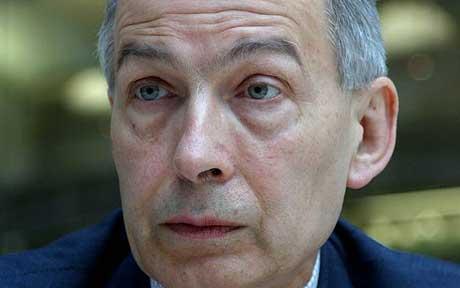 Is Frank Field back? The Labour MP has spent much of his life talking about the poor.
Judging by reports today, he might be offered a job chairing a commission on child poverty.
Is Frank Field back? The Labour MP has spent much of his life talking about the poor.
Judging by reports today, he might be offered a job chairing a commission on child poverty.
This is good news but, as Mr Field has already said, there is not much point in him debating the finer points of poverty definitions. He would need to be given remit to suggest policy. What should those suggestions be?
First, he should argue that we need to be a lot less self-indulgent about how we think about child poverty. It may be great to think of ourselves as tackling a major social ill, but the past government’s approach was not nearly as successful as it or its supporters liked to think. Between 1997 and 2007 the percentage of the population with less than 60 percent of the nation’s median income (i.e. those below the official poverty line) fell from 20 percent to 18 percent. But the percentage of the population living below 40 percent of the nation’s median income rose from 5 percent to 6 percent. In other words, those who were worst off were still very poor after ten years of Labour government. As Policy Exchange pointed out in Poverty of Ambition: Why We Need a New Approach to Tackling Child Poverty, it is much more important that we have a range of measures of deprivation to which specific solutions can be developed.
Second, it is clear that the benefit system needs to give welfare claimants more of a reason to work. At the moment some claimants can face tax rates of around 90 percent if they decide to work rather than stay on state handouts. For many, this means that they would have to work very hard in a job in order to achieve the same amount of income in work as out of it. To make things worse, the system is so complex that claimants just don’t trust the advice they get from welfare advisers. The solution? Allow claimants to keep more of their benefits as they earn, as Policy Exchange suggested earlier this year. This would start to solve some of the poverty trap problems that Mr Field has talked about in the past.
Welfare reform is always a top priority for a new government, but is very hard to push through. Thankfully, the new team at the Department for Work and Pensions probably has more expertise in it than any other. Iain Duncan Smith has spent years looking at these issues for the Centre for Social Justice, Chris Grayling mastered the welfare-to-work brief when he shadowed it in opposition, and Steve Webb is a professional economist who specialised in the tax and benefits system at the Institute for Fiscal Studies. The addition of Frank Field to the arena only gives more reason for hope.
Lawrence Kay is a Research Fellow in the Policy Exchange Economics Unit.






Comments